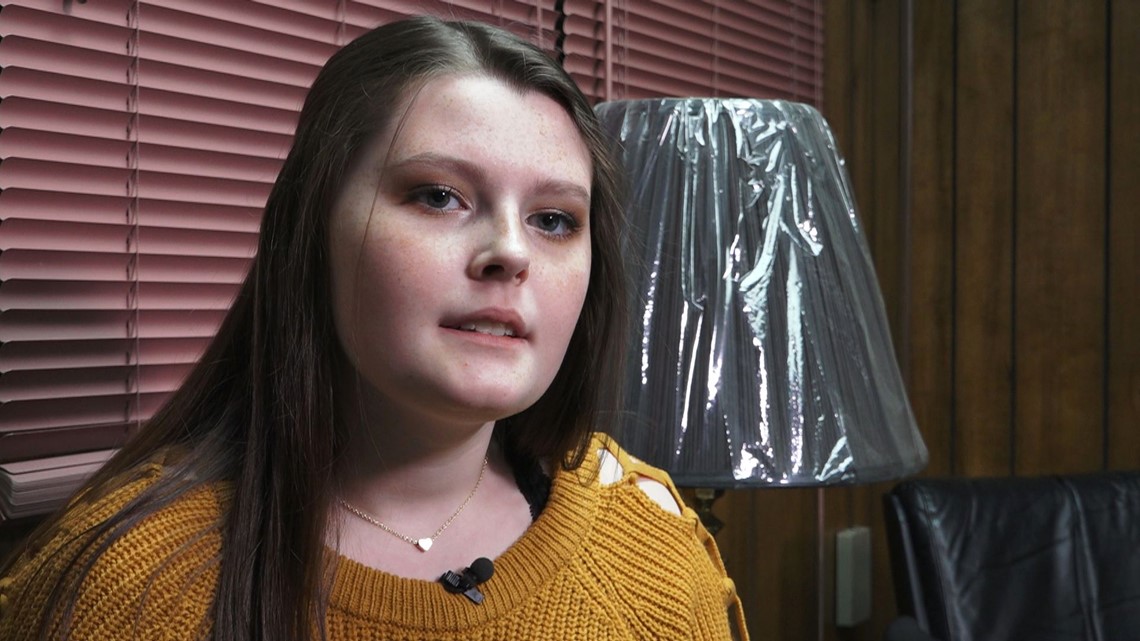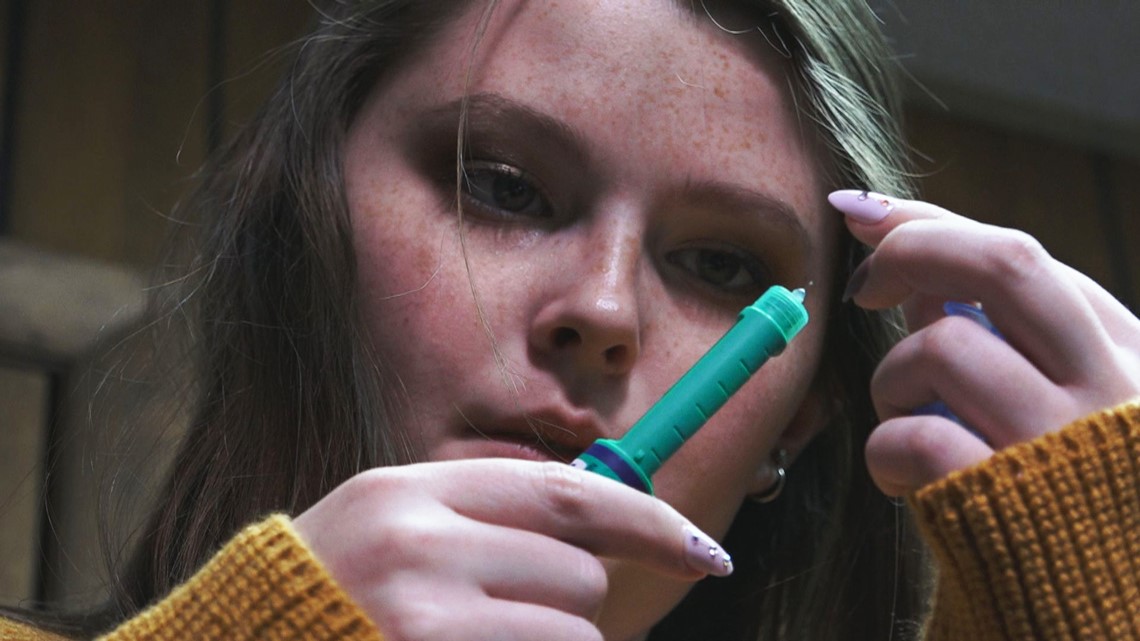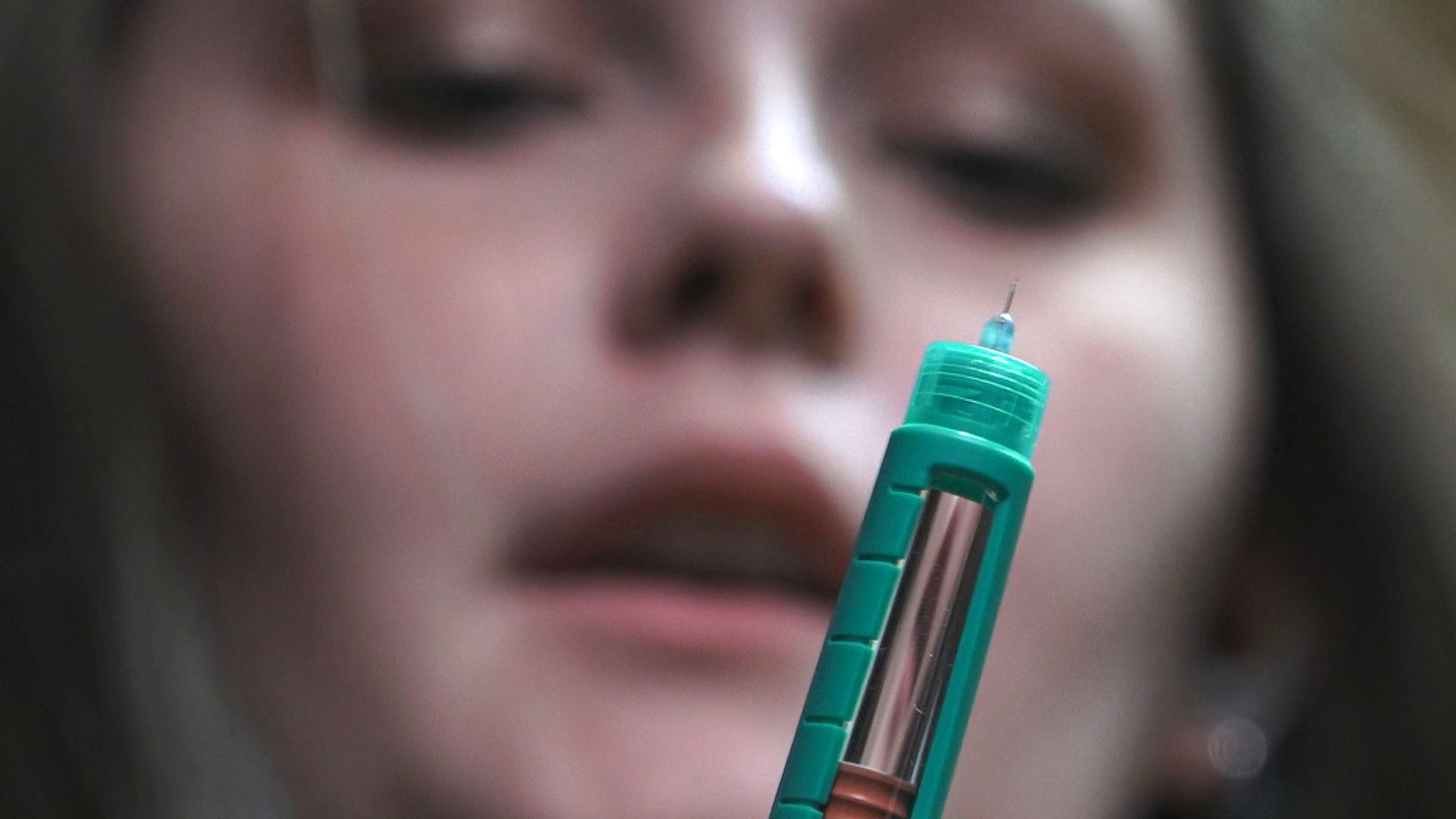ROGERSVILLE, Tenn. — For many children and adults, this year's Thanksgiving meal will begin like every other meal: with a sharp needle to inject insulin.
Alexis Varnell, a freshman at Cherokee High School in Rogersville, gives herself four shots every day. She also draws blood from her fingertips four times every day to test blood sugar. It's a routine she began on the final day of fourth grade.
"I felt faint, kind of dizzy, was really thirsty, and using the bathroom a lot. I went to the hospital and my blood sugar was more than 500. It is normally between 80 and 150. I did not know what diabetes was. I am type 1. Your pancreas stops working and your body does not produce insulin," said Varnell.
Varnell wants more people will be aware of the facts and misconceptions regarding type 1 diabetes, also known as juvenile diabetes.


Many medical professionals now refer to the disorder as type 1 diabetes, or T1D, because the term "juvenile" diabetes can be a misnomer. T1D is an autoimmune disorder that attacks the pancreas and can occur at any stage of life. It also is not a condition you grow out of.
"People will assume that it's my fault that I have diabetes. They'll be like, 'You ate too much' or something like that. There was not anything we did to cause it," said Varnell.
"It is something she will have to deal with the rest of her life. She will have to take shots and test her sugar every day of her life. She's my hero. She's a brave child, she really is," said her mother Penelope Varnell.
Penelope Varnell said her daughter was fortunate to be diagnosed quickly at East Tennessee Children's Hospital when her symptoms began. The Varnells want others to know the symptoms to avoid dangerous situations that include diabetic comas and amputated limbs.


"Make sure they know the symptoms so they can watch out for their children, just in case. Weight loss, bladder problems, being thirsty, headaches, and those kinds of things," said Alexis. "If you don't take care of it, you can have your legs amputated, which is really scary."
"And it messes with her [Alexis's] vision. Any of those symptoms, when they take their children to the doctor, have them check their sugar," said Penelope.
Alexis also wants to raise awareness that she and others with T1D are no different than others, aside from several daily injections.
"It usually doesn't hurt, but sometimes it does. Nobody wants to take four shots a day. You're just the same as everybody else. You just have to take time for shots before you eat, and you're good," said Alexis.
SIGNS AND SYMPTOMS OF DIABETES
The Juvenile Diabetes Research Foundation (JDRF) uses the following text to describe signs and symptoms of type 1 diabetes:
- Headaches
- Weight Loss
- Blurry Vision
- Extreme Thirst
- Frequent Urination
- Increased Appetite
- Fruity Breath Odor
- Fatigue and Weakness
- Rapid Deep Breathing
- Dry Mouth and Itchy Skin
- Feeling drowsy or lethargic
- Pain or Numbness in Extremities
See the JDRF.org website for more resources on facts, treatments, and how to live with 1 diabetes.

